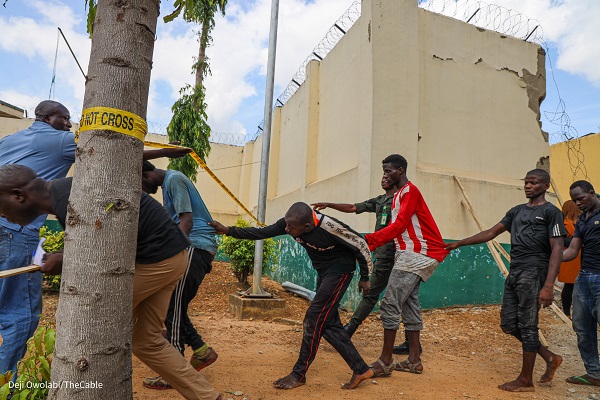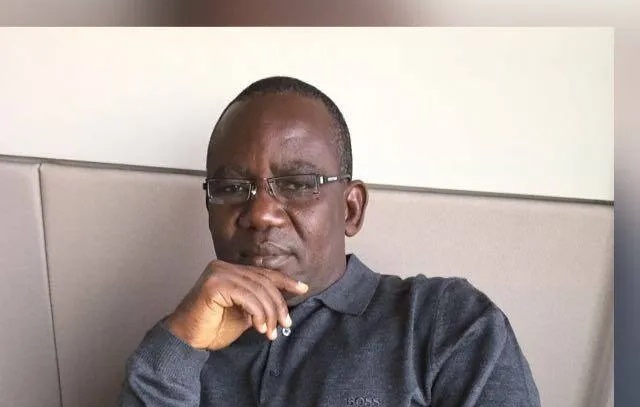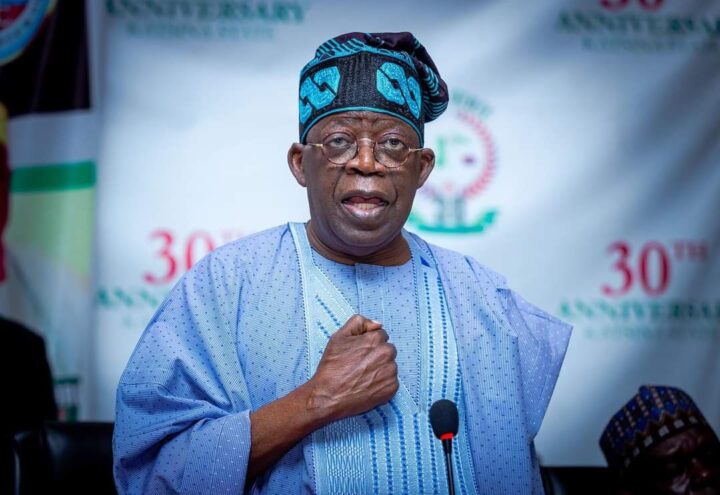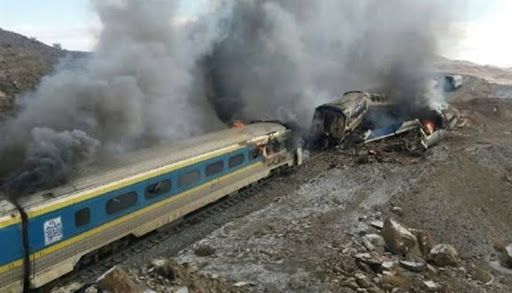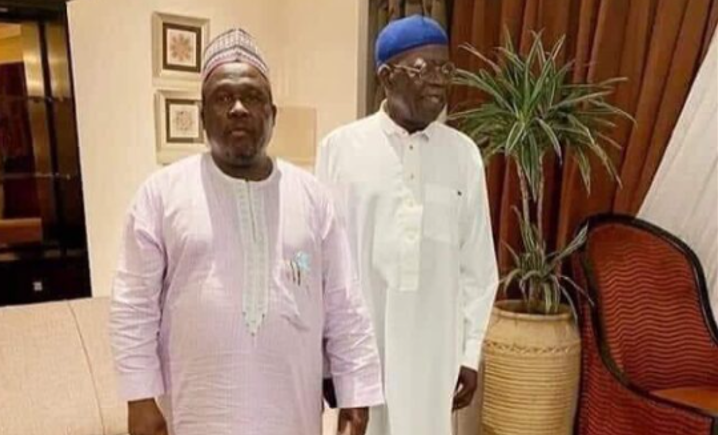Tuesday’s attack on the Medium Security Custodial Centre, Kuje, FCT, by the Islamic State in West Africa (ISWAP) terrorists was especially scary because of the escape of all the 64 Boko Haram prisoners — along with other dangerous criminals and criminal suspects. In a rare gesture since he came to office in 2015, President Muhammadu Buhari visited the crime scene the following day before leaving for a summit in Senegal. Same Tuesday, gunmen opened fire on his advance team in Dutsinma town, Katsina state, on their way to Daura to prepare for his visit for the Eid weekend. Two members of the presidential security team were reportedly injured in the exchange of gunfire.
The message from the terrorists is very clear: we can operate wherever. After all, surprise attack is their modus operandi. If they could attack the advance team of the president and commander-in-chief of the armed forces of the largest black country in the world, then it is not a message we should treat as a bluff. In March, they attacked the Kaduna airport and the Abuja-Kaduna train, killing nine passengers and kidnapping scores. Kuje, on the outskirts of Abuja, came under a well-executed attack by the terrorists who went on to unleash undesirable elements on the society. The Kuje attack exposed yet again the vulnerability of our prisons. It is now a fully established fact.
We, as ordinary citizens, are only left with asking questions and getting no assuring answers. If there is one sector we have sunk billions of dollars into in the last decade, it is security. But what we have seen is the progressive degeneration of security across the length and breadth of Nigeria. There was a time we were celebrating success against the terrorists — that the territories they used to control (described by a foreign journalist in 2015 as “the size of Belgium”) had been largely reclaimed and that their capacity to strike had been degraded — but what we have witnessed over time is the expansion of the frontiers to the north-west and parts of the north-central that used to be secure.
The Kuje attack, reportedly carried out with explosives, was incredibly clinical and embarrassing. It was as if there was no resistance of any kind. Did the security agencies get any prior intelligence or not? If they did, what action did they take to prevent it? How did the terrorists move freely all the way from their base, wherever, to attack Kuje without much of a fight? Is it that we do not have an effective surveillance system? Were there insiders who collaborated with ISWAP/Boko Haram to carry out the attack? With the jail breaks across the country, what measures have we taken over the years to prevent what happened in Kuje? There are definitely more questions than answers.
Advertisement
Buhari came to power in 2015 with two tangible promises: to fight corruption and tackle insecurity. In any case, no presidential candidate needs to promise security — that is the primary duty of government. Buhari came with the reputation of being a retired general who would put terrorists to the sword, having dealt similar blows on Maitatsine religious extremists as an army commander in his previous life. In my opinion, President Goodluck Jonathan and his Peoples Democratic Party (PDP) were voted out principally because of the insecurity and allegations of corruption. There were voters who genuinely believed that Buhari was going to tackle the twin headaches with all his might.
I did warn, in an article entitled ‘A Week in the Life of President Buhari’ (THISDAY, June 7, 2015), that “those who said Buhari crushed Chadian rebels and Maitatsine in 1983 and 1984 without foreign help were probably oblivious of the fact that terrorism is a different animal altogether”, but at the back of my mind, I felt I was just being unnecessarily sceptical. More so, Jonathan had made tremendous progress against Boko Haram before the March 2015 general election and I thought it was just for Buhari to consolidate on it. To be fair, he did try. Attacks on Abuja, Kaduna and Kano had ceased. By 2016, we virtually had Boko Haram by the balls. It looked like we then went to sleep.
The ancient farmers/herders’ clashes, caused by the seasonal search for fresh pasture which often leads to economic ruin for farmers, took a new dimension: ethnic, religious and political. This was left to fester until it became an intractable national security problem that has now left worrisome slits in the ethno-religious fabric of Nigeria. Banditry in Zamfara escalated to frightening, unimaginable heights; ethno-religious clashes in Kaduna kept gushing out more rivers of blood; and the south-east joined the bleeding fray with the entry of the Indigenous People of Biafra (IPOB) and Eastern Security Network (ESN) into the scene. Oil theft, meanwhile, shot up in the south-south.
Advertisement
Although the south-west escaped joining the secessionist mayhem by sagely putting the Yoruba Nation agitations under check — and that is probably why the zone is enjoying relative peace and stability today — it remains a scant consolation as almost every part of Nigeria is now playing host to terror, either high-grade or low-grade, and general insecurity. No Nigerian can genuinely claim to be safe under our current circumstances. One part may be safer than the other but it is just a matter of time before every part gets sucked in — unless the government can act decisively to save our souls. Without a doubt, most Nigerians felt much safer in 2015 than in 2022. That sums up the story.
Are we hapless and helpless? I hope not. But you are definitely tempted to throw up your hands in surrender when you consider the audacity of the terrorists. It seems they are even taunting us, showing us in bits and pieces the places they can hit if they so desire, imitating the “you cannot catch me” line in a children’s TV cartoon. As non-state actors, terrorists should never have superior weaponry and capacity, not with the kind of investment we have made in the security services recently. We can cook up excuses that suit our caprices and conjure the most logical arguments to explain the prevailing insecurity in the land — but the summary is: we are not safe and we know it.
What exactly is the problem? Is it intelligence-gathering? I admit I am a novice when it comes to security matters but I know, for a fact, that there is no local government area in Nigeria that does not have the presence of intelligence-gathering operatives, supported by the National Orientation Agency (NOA) and traditional rulers. Any village that does not have a police station will have a post. The armed forces and paramilitary bodies have intelligence-gathering units. The police have an intelligence-gathering unit. The Department of State Services (DSS) has operatives in all the 774 councils. I may, therefore, not think or believe that intelligence-gathering is the real issue here.
Assuming we are poor at intelligence-gathering, what steps have we taken to improve and make it world-class, given the enemies attacking us on all sides? Of course, I do not expect the government to share security information publicly, but Nigerians would love to see the results so that they can be assured things are getting or will get better. We cannot confidently say that in the last three to four years. I do not dispute that we have recorded commendable successes on occasions and I salute the sacrifice and sweat of our men and women in uniform. But for those whose loved ones are being kidnapped or killed, how will you convince them that our security has indeed been improving?
Advertisement
Assuming we really gather good intelligence, what do we do with it? Again, I do not expect the government to publish this on the pages of newspapers. But for as long as trains and prisons are being attacked and Nigerians are being killed and kidnapped, we will keep asking these questions. If I were to borrow from the films I have watched and stories I have heard, acting on intelligence seems to be a big challenge for this government — assuming intelligence-gathering is up to scratch. We have heard stories of rivalry between security agencies and how they sometimes work at cross purposes. Intelligence gathered and not acted upon, or poorly acted upon, is as good as nothing.
Some things are commonsensical, if you ask me. When we were clearing Sambisa forest of Boko Haram terrorists, they were surely going to surface elsewhere. Banditry in Zamfara was always a threat to the neighbouring states. Attacks on Niger state were warning shots to Abuja. The creation of ESN forewarned us about a budding insurgency in the south-east. Maybe we indeed get good intelligence but do not act because of a genuine lack of capacity? Perhaps we do not have the arsenal needed to confront these monsters? Perhaps our officers are poorly trained, poorly motivated and poorly equipped? Or are some of the officers corrupt and complicit?
Maybe the real problem is the leadership of the security agencies. What new ideas are the security chiefs bringing to the table? What has changed in the way they organise the operations of the agencies since their appointments? There are juicy perks of office, we know, but are there consequences for failure? Insecurity has exposed the underbellies of our security agencies. If the Kuje attack does not lead to an overhaul of the system, it will just be too typical. Naturally, what happened in Kuje would have led to the resignation or sack of security chiefs in a country where there are consequences for failure. In Nigeria, we would rather pamper than punish failure.
The inconvenient truth is that terrorism will be with us for much longer. We need a better containment strategy. Things are further worsened by the fact that there are people in the system who believe in the philosophy of the terrorists. The way terrorists operate also means they need only one successful attack to strike fear into the citizens and make it look like the government cannot protect them. That is why we need a comprehensive audit and revamp of the security ecosystem. Terrorists will not give up. We must prepare to contain and crush them. We must not go to sleep after recording a few victories, neither must we give in to the campaign of terror. Vigilance.
Advertisement
AND FOUR OTHER THINGS…
PAYING THE PRICE
On August 15, 2021, I wrote: ‘Dear God, Let Oil Price Fall to $44.’ Many thought it was a joke. My prayer was not answered, sadly, as Russia invaded Ukraine and oil prices went above $120, sending consumer prices up and causing a cost of living crisis globally. It is worse in Nigeria, where now pay N800 for diesel. We are not exporting enough oil to benefit from high prices. Oil production is low and much of it is stolen. We are using a chunk of our share of oil to subsidise fuel importation. And we are not earning much FX from oil export. This is flushing the naira down the drain. I was happy when oil finally fell below $100 last week. I still want $44 for the sake of Nigeria. Paradox.
Advertisement
POINT OF CORRECTION
In my article, ‘Tinubu’s Lingering Certificate Conundrum’ (THISDSAY, July 3, 2022), I wrote that if a presidential candidate is disqualified following a petition by an aspirant, it is the person who came second at the primaries that will become the new candidate. Lawyers have told me that my interpretation of Section 29(6) of the Electoral Act, 2000 is faulty. I am told that if a candidate is disqualified for not meeting constitutional requirements, the party will not field a candidate. If the disqualification is after the election, the party that came second will be declared winner. I need to admit that there are many provisions in the new Act that many of us still don’t know. Complicated.
Advertisement
ON AFROBEATS
I have been watching and enjoying the 12-episode Netflix documentary on Afrobeats by Ayo Shonaiya, the filmmaker. The documentary unveils the evolution of the genre we now call Afrobeats (with the “s”), which is chiefly a fusion of Fela’s Afrobeat, R&B, hip-hop, reggae, and fuji, laced with African rhythms of instrumentation and street lingo. It could be fashionable for artistes who are enjoying global headlines today to take all the glory and ignore the roles played by their predecessors who tilled the land and paved the way through thick and thin. Innovations go through a refining process and it is important to know the history and give honour to whom it is due. Kudos.
Advertisement
THE HANDS OF TIME
The first time I heard an R. Kelly song was on radio in 1992. I remember the title very well: ‘She’s Got That Vibe.’ The single from his debut album featured Public Announcement. I loved the song instantly and knew he’d got that vibe. As his career progressed, it turned out the ‘Pied Piper of R&B’ was as obsessed with girls in real life as in his artistry. He has now been jailed for 30 years for serial sex offences. I feel sorry for him but this should send a clear message to sex predators that there is always a day of reckoning. With hindsight, R. Kelly would be singing ‘If I Could Turn Back the Hands of Time’. How ‘I Wish’ he would ‘Step in the Name of Love’ now that ‘The Storm is Over’. Trapped.
Add a comment

